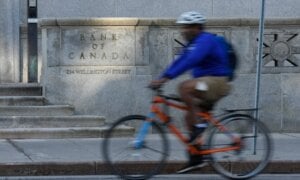What investors need to know about forex: a beginner’s guide
Forex trading is speculation on the price movements of currency. Traders buy currencies they think will increase relative to other currencies, or sell currencies that they think will decrease in purchasing power. Even for those with a lot of time and experience, forex is risky.











Hello There:
I have been trading the Forex market for years & also have been teaching Forex trading for years! I am now a consistently profitable trader year after year, & my trading account has been verified by myfxbook. I agree with this article that Forex trading is risky. But at the same time there is no better market that you can limit your risk to an exact amount of your choice. In the Forex market most retail traders lose money! This is a fact, but if you know what you are doing you will be able to consistently pull money out of this market. As Warren Buffett once said, “Risk comes from not knowing what you are dong”. It s not only true in the Forex market, but for anything else that you do in life as well. Let me put it in another way. The Forex market is a place where money is transferred from the “ignorant” to “knowledgeable”. Hence, as in any area of life, education is centrally important to Forex as well.